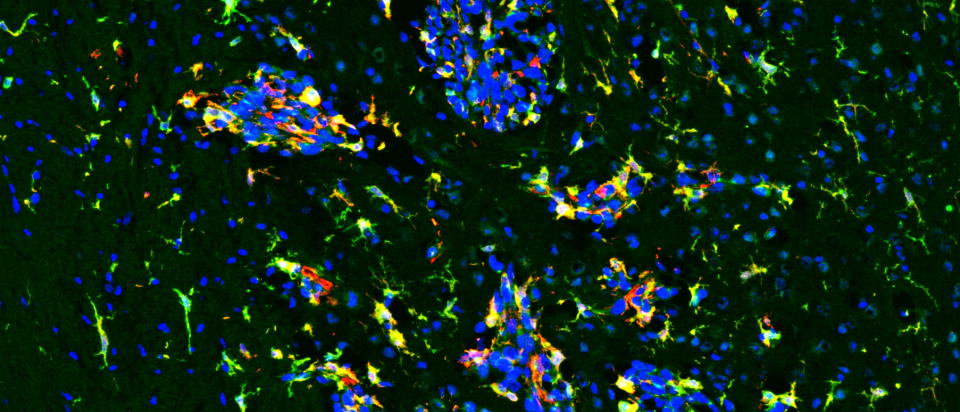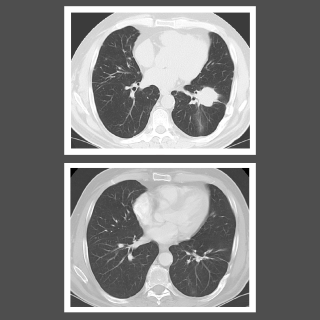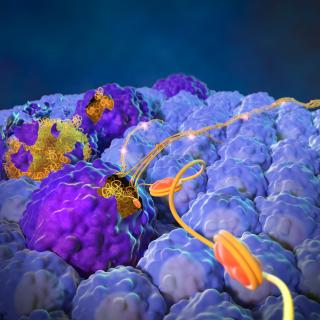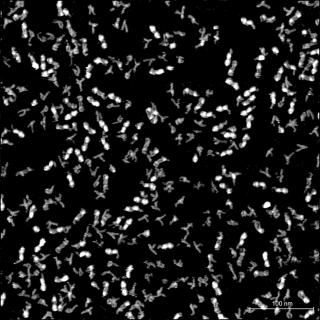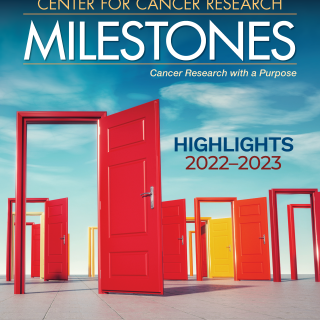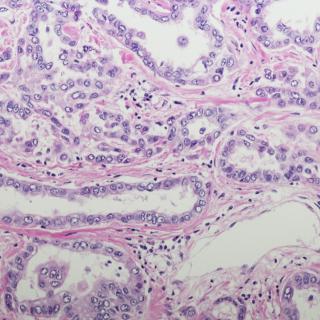News and Events
New Strategy Shows Promise Against Deadly Breast Cancer in the Brain
A new NIH study points to a promising strategy for treating aggressive breast cancer that spreads to the brain, a complication with few effective options. Learn how blocking a key brain cell survival pathway could open the door to future therapies.
Read MoreClinical trial researching therapy for aggressive gliomas
A clinical trial led by Sadhana Jackson, M.D., Adjunct Investigator in the Pediatric Oncology Branch, is researching a drug therapy for diffuse midline gliomas, a type of aggressive brain tumor.
Read MoreNIH study finds that immunotherapy substantially increases survival of people with lymphomatoid granulomatosis
Results from a clinical trial conducted by CCR researchers show that people with low-grade lymphomatoid granulomatosis who are treated with interferon-alpha, a type of immunotherapy, can live for decades after diagnosis. Lymphomatoid granulomatosis is a rare precancerous condition triggered by Epstein-Barr virus infection. The findings suggest that immunotherapy can prevent the progression of low-grade disease to high-grade disease, which has a poorer prognosis and can quickly turn into an aggressive and fatal B-cell lymphoma.
Read MoreClinical trial researching therapy for HIV-associated blood cancers
A clinical trial led by Kathryn A. Lurain, M.D., M.P.H., Assistant Research Physician in the HIV and AIDS Malignancies Branch, is researching a combination drug therapy for HIV-associated B-cell non-Hodgkin lymphomas.
Read MoreClinical trial researches combination drug therapy for B-cell lymphoma of the central nervous system
A clinical trial led by Mark Roschewski, M.D., Senior Clinician in the Lymphoid Malignancies Branch, is researching a therapy for B-cell lymphoma of the central nervous system.
Read MoreSignals released from dying cancer cells accelerate metastatic tumor growth
The final act of a dying cancer cell may be to spur the growth of other cancer cells.
Read MoreResearchers discover the multiple shapes of RNA, a boon for drug design
Using atomic force microscopy, CCR researchers directly observed individual RNA structures in cell-like conditions. They found that one primary RNA sequence can fold into many different conformations, which has important implications for the fundamental understanding of RNA and RNA-targeted drug design.
Read MoreNew Milestones publication now available
Every year, CCR makes remarkable contributions to the understanding, detection, treatment and prevention of cancer. This issue of our annual publication, Milestones, features 10 of our top scientific advances from the past year. These discoveries include advances in precision medicine — such as the identification of biomarkers that predict a patient’s response to immunotherapy or lead to health disparities — as well as research on a widely applicable cancer vaccine that could be employed in low-resource settings. Promising research on T cells provides insights into their resilience, behavior and tumor-reactivity with an eye toward developing better immunotherapies, and technological advances provide close-ups of key components of tumor growth and metastasis.
Read MoreA rare look into what makes mesothelioma aggressive, and potentially treatable
Scientists have a limited understanding of mesothelioma and how to treat it effectively, but that’s beginning to change. In a novel study, CCR researchers identified a 48-gene signature associated with a worse prognosis – but also identified a subset of patients who respond to certain immunotherapy and chemotherapy drugs.
Read MoreHoward A. Young, Ph.D., Elected as 2022 Fellow of the American Association for the Advancement of Science
Howard A. Young, Ph.D., Senior Investigator in the Cancer Innovation Laboratory, has been elected as a 2022 Fellow of the American Association for the Advancement of Science. This honor recognizes fellows for their achievements across disciplines from research, teaching, and technology, to administration in academia, industry and government, to excellence in communicating and interpreting science to the public.
Read MoreIn Memoriam: John J. DiGiovanna
The CCR community is deeply saddened by the passing of John J. DiGiovanna, M.D., Senior Research Physician in the Laboratory of Cancer Biology and Genetics.
Read More